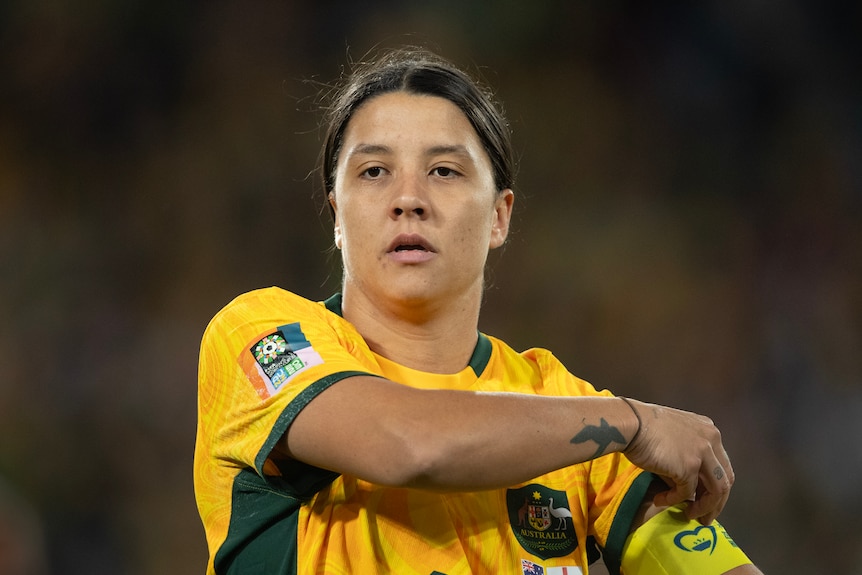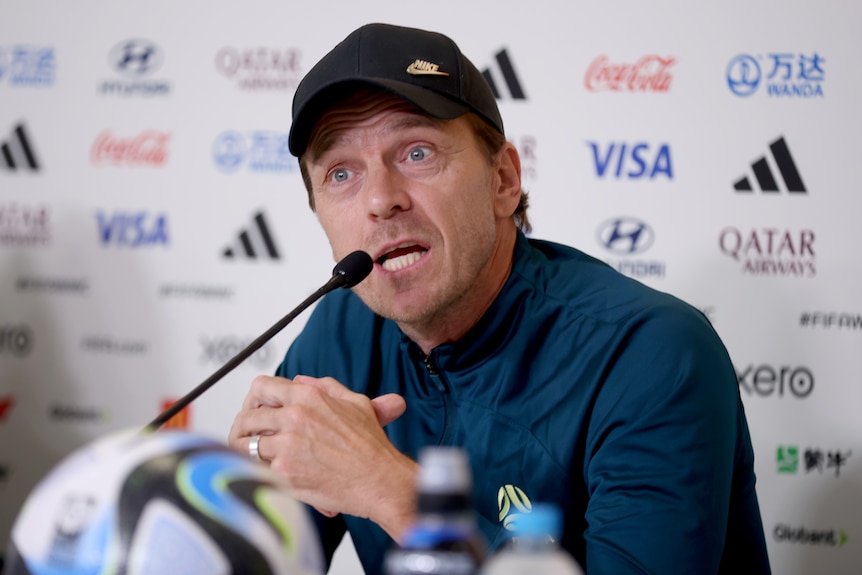The Matildas have used closed-door matches this week in the United States to boost Olympic preparations, testing new formations and game plans.
Coach Tony Gustavsson enjoyed the benefit of a long preparation for the friendly match against Mexico on Wednesday (AEST), giving his team new roles and instructions.
It’s squirrel secret stuff, and the first look will come in San Antonio against the current world number 31.
“It was a great opportunity for us to try different ways, different players, different tactics, different game management aspects in a closed-door environment so as not to give too much away,” Gustavsson said of the seven-day camp.
“By trying things, we feel the need to improve when the Olympics come.
“Tomorrow will be a moment (I don’t like the word experiments), but it will be a day in which we will try many things.”
Part of Gustavsson’s experimentation is due to the lack of player availability.
Emily Gielnik suffered a calf injury in camp, while Aivi Luik (hamstring), Katrina Gorry (ankle), Clare Hunt (foot), Courtney Nevin and Chloe Logarzo (both hip) were unable to travel due to issues. recent.
Gustavsson said he was hopeful that key names such as Hunt, Luik, “perhaps playing the best football of his career”, and Gorry, “our driving force”, would be available for the Olympics, which begin in July.
And then there’s Sam Kerr, missing until a year after feared torn ACL, and under the cloud of racially aggravated crime in the UK for allegedly calling a police officer something like “stupid white copper “.
Kerr kept the incident secret, without telling Football Australia or Gustavsson, who declined questions about the matter.
“Football Australia and I are going to respect the fact that there is an ongoing legal process,” he said.
“During that time, my focus will be 100 percent on the players who are available for selection.”
The Olympic team’s challenge is compounded by the team’s size of just 18 players, including two goalkeepers.
Only 16 outfielders must play seven matches in 17 days, should the Matildas reach the semi-finals as they did in last year’s World Cup.
Unavailability at the back, including PSG’s Hunt, has led Gustavsson to reconsider his decision, and on the table is a move towards a three-woman defense or trying new faces.

Sweden-based non-international defender Winonah Heatley could be one of them, while A-League pair Sharn Freier and Jada Whyman could also earn their first international caps.
“We are trying to play against the best team available to beat Mexico, it is also to get answers and we have to be brave enough to do it,” he said.
Gustavsson praised Mexico as a “very aggressive pressing” organized opponent who would challenge his team to find answers quickly.
At the Olympics, the Kerr-less Matildas will be led by Steph Catley in a tough group that includes the United States, Germany and an African nation.
Catley said lack of availability was not an excuse either in Paris or against Mexico.
“Most of our players play abroad in big teams in massive competitions or do very well in the A-League… looking very good technically, understanding things very quickly tactically,” he said.
“I have never seen this team look so comfortable and confident on the ball, playing across the lines and discovering different pressures in different ways as well as they have done recently.
“That’s what I’m most excited about, the way we play and the type of football we play, so I’m excited to keep building on that.”
Australia’s final opponent at the Olympics will also be confirmed on Wednesday, when Zambia and Morocco complete their two-legged qualifying match, with the North Africans taking a 2-1 lead in their home game in Rabat.
Sports content to make you think… or allow you not to. A newsletter delivered every Friday.
AAP


